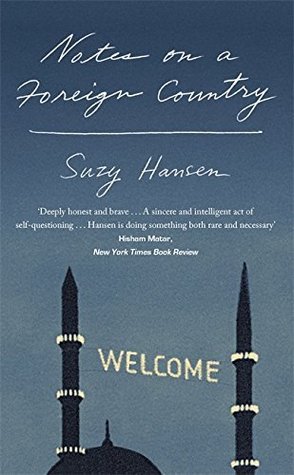More on this book
Community
Kindle Notes & Highlights
by
Suzy Hansen
Read between
May 19 - May 28, 2020
For journalists this failure of imagination had larger repercussions, of course, because we informed the public, and because as the so-called liberal journalists we were extremely arrogant. We revered our supposedly unique American standards of objectivity, but we couldn’t account for the fact—were not modest enough to know—that an objective American mind is first and foremost still an American mind.
Anti-Americanism is not some bitter mental disorder inflamed by conspiracy theories and misplaced furies and envy. It is a broken heart, a defensive crouch, a hundred-year-old relationship, bewilderment that an enormous force controls your life but does not know or love you.
Such was the central paradox of Turkish culture—liberalism in service of an authoritarian national project.
Here’s the thing: no one ever tells Americans that when they move abroad, even if they are empathetic and sensitive humans—even if they come clean about their genetic inability to learn languages, even if they consider themselves leftist critics of their own government—that they will inevitably, and unconsciously, spend those first months in a foreign country feeling superior to everyone around them and to the nation in which they now have the privilege to live.
As Gilman writes, the difference between the Europeans and the Americans was that the Europeans never even imagined that colonized peoples were capable of being as modern as Europeans. The Americans wholeheartedly believed they could make anyone into an American.
That is why, Shah explains, when Americans speak about foreign countries, they use a rhetoric of “development,” words like “resistant to reform,” “left behind,” “spread of democracy and free markets,” “a place of despair,” and “strengthening civil society.”
The Ottoman authorities viewed the American intruders as a “threat to diversity.”
The Ayatollah Khomeini said, in one of his most famous speeches, “Our dignity has been trampled underfoot … If some American’s servant, some American’s cook, assassinates your marja in the middle of the bazaar, or runs over him, the Iranian police may not arrest him. Even if the Shah himself were to run over a dog belonging to an American, he would be prosecuted. But if an American’s cook runs over the Shah, the head of state, no one will have the right to interfere with him.” America and NATO had this diplomatic immunity arrangement in many countries, including Turkey, and it was deeply
...more
The Iranian who has been harassed at work, who encounters only grumpy bureaucrats looking for bribes, who is everywhere spied on by the police, comes to the mosque to find balance and calm, to recover his dignity. Here no one hurries him or calls him names. Hierarchies disappear, all are equal, all are brothers, and—because the mosque is also a place of conversation and dialogue—a man can speak his mind, grumble, and listen to what others have to say. What a relief it is, how much everyone needs it. This is why, as the dictatorship turns the screws and an ever more oppressive silence clouds
...more
In the region, “modernization” is, according to Said, “connected in the popular mind with foolish spending, unnecessary gadgetry and armaments, corrupt rulers, and brutal United States intervention in the affairs of small, weak countries.”
“Empires rot from the inside even as emperors blame the barbarians.”


